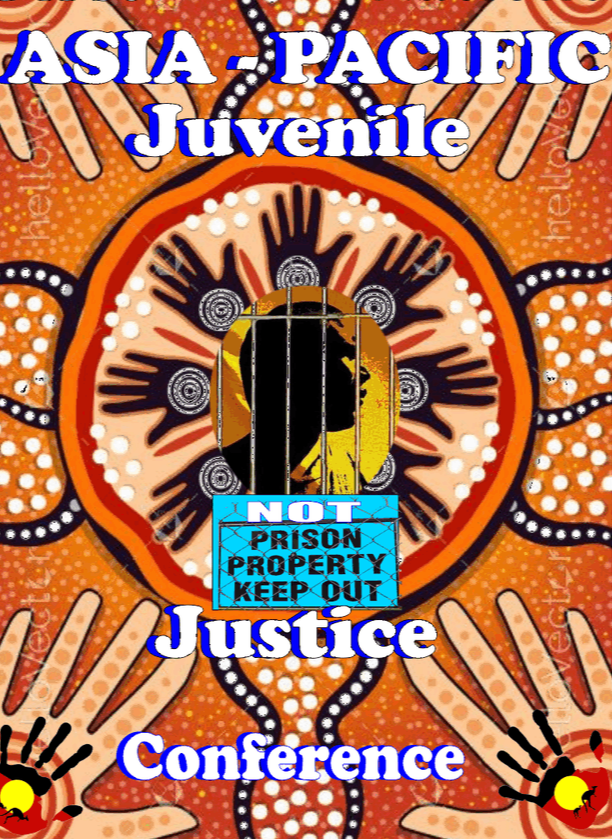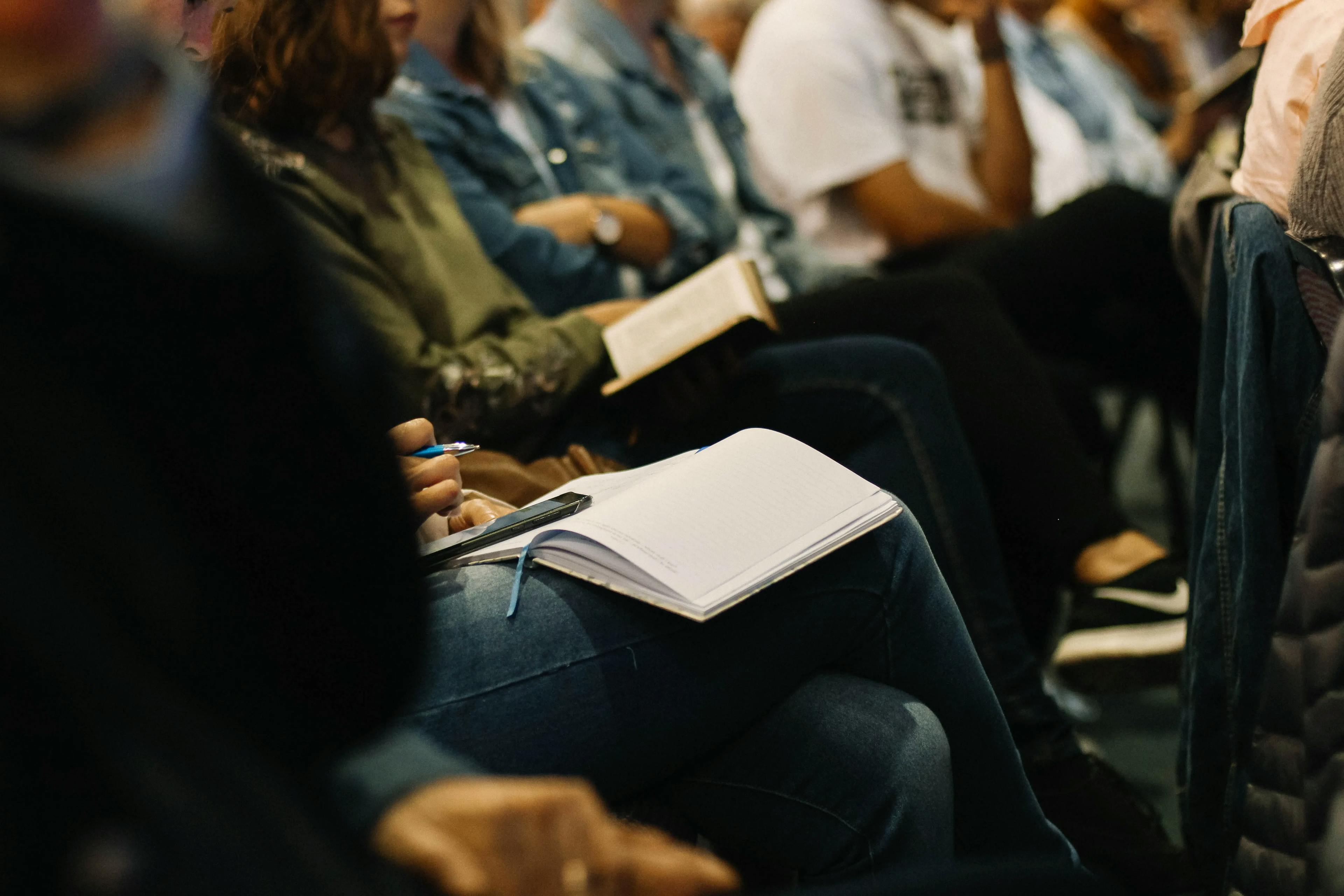THE CONFERENCE
The 2025 Asia Pacific New Directions in Juvenile Justice Conference is scheduled to be held on May 21 - 23, 2025 at Sheraton Fiji Golf & Beach Resort in Fiji, South Pacific. The conference aims to bring together experts, stakeholders, and community members to discuss and develop strategies to prevent young people from entering the justice system, support those who are already involved, and promote reconciliation and healing. The conference is a platform for sharing knowledge, experiences, and best practices, and it provides an opportunity to collaborate and build partnerships to improve the lives of Indigenous youth and their communities.
The conference is also a forum for celebrating youth resilience, strength as well as showcase innovative and inspiring programs that support Indigenous youth to thrive and achieve their potential, such as mentoring, education, art, and sport programs. By highlighting these positive initiatives, the conference will challenge the negative stereotypes and stigmatization of Indigenous youth and promotes a more nuanced and respectful understanding of their experiences and aspirations.
With the invention of the internet, the world is now at most peoples’ door step as such the sharing of information whether it be programs run by government or not-for-profit organisations has become more accessible in today’s society. As such, the conference endeavours to establish a network for the sharing of information on preventive Juvenile Justice programs.
The media today sensationalises Juvenile Justice in a negative light to the point we have seen individuals threatening vigilante actions and no viable positive suggestions on how to prevent further escalation. We must always remember that monuments are only erected to the positive and not the negative incidents in our society.
CONFERENCE PHILOSPHY & BELIEFS
The philosophy of the 2025 Asia Pacific New Directions in Juvenile Justice Conference centers around the belief that justice systems must be rooted in the principles of Indigenous cultures and communities. Furthermore, the conference emphasizes the importance of involving Indigenous and non-Indigenous communities in the decision-making process, particularly in cases involving Indigenous youth. This includes recognizing and respecting the role of Elders, community leaders, and cultural experts in the justice system. Overall, the philosophy of the 2025 Asia Pacific New Directions in Juvenile Justice Conference seeks to promote a justice system that is fair, just, and culturally appropriate. It recognizes the unique experiences and perspectives of Indigenous communities and seeks to address the underlying issues that contribute to youth offending through a collaborative and culturally sensitive approach.
In today’s hectic lifestyle we have almost instant news coverage on top of social media platforms 24/7, internet, jet travel and many other modern day technologies that can impact our lives instantly. The foundation of the conference is to share and discuss positive models that we may not be aware of, either in a different town, state or even country. As in most cases our work tends to be focused on the most prevalent issue. Thus preventing and blocking a chance to evaluate the bigger picture of what is taking place in other locations.
It is the conference belief that the wheel does not necessarily need to be reinvented, as such the sharing of ideas and networking is our most influential weapon in moving forward with sustainable changes. The event is structured in such a way as to develop a wider methodology towards preventative programs that are not just culturally appropriate but community-based initiatives. This conference is devoted to showing the positives in addressing Juvenile Justice issues. Hence, the event has been developed with the belief that it is time to promote the positives and successes in Juvenile Justice programs, whilst still recognising that we still have a long way to go.
CONFERENCE AIMS & OBJECTIVES
The conference objectives are designed to empower and stimulate discussion in a positive manner that can and may be used back in our work environment to further develop effective community justice programs. Moreover one of the most powerful objectives that Indigenous people have is the strength to overcome adversity through the power of sharing knowledge, and therefore the conference will attempt to foster all of the issues set out in this conference to
- •
Reduce incidence of Juvenile Justice at all levels.
- •
Provide an open and frank forum for discussion.
- •
Lend support to individuals and families working in the field of Family and Juvenile Justice.
- •
Help establish and grow a worldwide network and resources through information sharing.
- •
Exchange information regarding the successes of community projects.
- •
To bring together men, women and organizations as a united voice against Juvenile Justice
- •
Bring together, researcher, service providers, government agencies, policy makers/developers & organisations.
- •
Networking and lend support to individuals and groups working in the field of Juvenile Justice.
CONFERENCE THEME
The key themes of the 2025 Asia Pacific New Directions in Juvenile Justice Conference is the need for a holistic approach to youth justice that acknowledges and addresses the underlying causes of offending, such as intergenerational trauma, poverty, and discrimination. The conference highlights the importance of involving Indigenous communities and Elders in the justice process, as they have a deep understanding of the cultural and social factors that contribute to youth offending. By engaging with Indigenous perspectives and knowledge, the conference aims to promote culturally appropriate and effective responses to youth offending that prioritize prevention and rehabilitation over punishment.
WHY ATTEND
This conference presents a unique opportunity for delegates to participate in a positive environment that is dedicated to the sharing of information and the empowering of all who attend. In our everyday working environment the day to day stresses of our positions tends to limit us in expanding our knowledge and networking. Whether you work at a community level or at governmental level the opportunity to network and gain contacts outside of your local region tend to be limited, this is why this conference will be so valuable to participants. Hence, all Indigenous people and non-indigenous people whether professional or community-based, who have a vested interest in combating Juvenile Justice are invited.
WHO SHOULD ATTEND
- •
Juvenile Justice workers
- •
Community groups
- •
Family relationship workers
- •
Community leaders
- •
Indigenous women and men’s groups
- •
Psychologists, Social Workers, NGOs
- •
Women groups, Human Rights Enthusiasts
- •
Nurses / Doctors/ Psychiatrists, Police Officers
- •
People who are interested in combating Juvenile Justice
- •
Government Representatives, Community Leaders
- •
Consultants / Legal Professionals
- •
Juvenile Justice Field Workers, Teachers
YOUR INVITATION
We wish to invite Indigenous and non-Indigenous people from Australia and throughout to attend the conference to share and gather information. We also extend an invitation to participants to join us at the conference dinner in a relaxed atmosphere.
To ensure that delegates attend and participate, it is important to note that to show accountability of delegates in meeting their obligation; each delegate will receive a Certificate of Attendance only when they attend 85% of all the conference sessions. In addition, delegates will receive an electronic copy of all papers & presentations presented at the conference.
- •
Who: Individuals, Groups, NGO’s, Government Agencies & Others
- •
When: 21st to 23rd May 2025
- •
Where: Sheraton Fiji Resort
- •
Time: 8.30am – 4.30pm
- •
Conference Networking Dinner: Sail Restaurant Fiji
WARNING: Limited availability. Please register online or contact us via email, should you have any further queries.
FOR THE BOSS
As an employee, we are asked to present valid reasons why we should attend. Listed below are valid points that can be raised with your employer to justify your attendance.
- •
Staff attending conferences regularly tend to become long term employees.
- •
An event such as this adds to the positive moral of staff.
- •
Conferences are a great way of providing ongoing training.
- •
Provides the opportunity to further enhance the organization knowledge base,
- •
Allows delegates to showcase the organization nationally and internationally,
- •
May provide organizations with new ideas,
- •
Gives organizations a voice at a national level,
- •
Provide an opportunity to evaluate various programs,
- •
Because this event is conducted over a short period, staff are only absent for a minimal amount of time.
CALLING FOR PAPERS
Guidelines for Submitting Paper:
- •
Papers must take in to account cultural sensitivities of all groups.
- •
Papers must treat the themes in a manner that contributes positive and fruitful discussion of the conference aims.
- •
Conference papers must be presented in the finished format not less than 60 days prior to the event.
- •
First round of call for papers will be closed by May 30, 2024 with a second, if required
- •
Papers that are not chosen in the first round may be resubmitted if there is a second round.
- •
Papers should be submitted in either Powerpoint or Microsoft Word format (word).
- •
A Brief Outline of Paper (maximum 350 words online)
- •
Presentation time at the conference for your papers will be allowed a maximum of 45 minutes, this will include question and answer time.
- •
Call for papers registration fee of $750 will apply to all persons submitting papers payable upon acceptance of papers.
- •
Papers must portray the conference themes.
- •
A maximum of two presenters per paper are permitted for the discounted call for papers registration fee. Each presenter must supply their biography and photo.
- •
No more than two paragraphs consisting of 5 lines per paragraph.
- •
A Head and Shoulders photo must be provided as part of your initial paper submission.
- •
Authors agree to have their paper published as part of the conference proceedings.
- •
Authors to agree to allow biography of themselves and their photo published as part of the conference promotion.
- •
If required, Authors agree to consent to media interviews.
- •
Authors and Presenters must show due respect and acknowledgement to Traditional Owners and Elders.
- •
To submit a Paper, you must register on the website portal and complete the online Submit-A-Paper form.
- •
Author/s of papers presented at the conference will be formally notified of acceptance.
CONFERENCE AGENDA
- •
Overview of current Indigenous juvenile justice systems and their effectiveness
- •
Understanding the root causes of Indigenous youth involvement in the justice system
- •
Culturally responsive approaches to juvenile justice for Indigenous youth
- •
Community-based alternatives to juvenile detention for Indigenous youth
- •
Advocating for the implementation of the United Nations Declaration on the Rights of Indigenous Peoples in juvenile justice systems
- •
Addressing the over-representation of Indigenous youth in the juvenile justice system
- •
Restorative justice practices for Indigenous youth in the juvenile justice system
- •
Ensuring access to legal representation and support for Indigenous youth in the justice system
- •
Addressing the trauma and mental health needs of Indigenous youth in the justice system
- •
Supporting Indigenous families and communities in preventing youth involvement in the justice system
- •
The role of education and mentoring in reducing Indigenous youth involvement in the justice system
- •
Understanding the impact of colonialism on Indigenous youth and the justice system
- •
The intersection of poverty and juvenile justice for Indigenous youth
- •
Addressing the criminalization of Indigenous cultural practices and traditions
- •
Strategies for improving communication and collaboration between justice system personnel and Indigenous communities
- •
Involving Indigenous youth in decision-making processes related to juvenile justice
- •
Addressing the disproportionate impact of the justice system on Indigenous girls and gender-diverse youth
- •
Understanding the experiences of Indigenous youth with disabilities in the justice system
- •
The role of media and public perception in shaping attitudes towards Indigenous youth in the justice system
- •
Understanding the historical trauma and its impact on Indigenous youth in the justice system.
- •
Building partnerships between Indigenous communities and justice stakeholders.
- •
Examining the role of cultural competency training for justice professionals working with Indigenous youth.
- •
Discussing the use of diversion programs for Indigenous youth in the justice system.
- •
Identifying best practices for engaging and supporting families and caregivers of Indigenous youth in the justice system.
- •
Developing trauma-informed approaches to juvenile justice for Indigenous youth.
- •
Exploring the impact of child welfare policies and practices on Indigenous youth in the justice system.
- •
Developing strategies for prevention and early intervention for Indigenous youth at risk of involvement in the justice system.
CONFERENCE NETWORKING DINNER
As they say, all work and no play, makes for a dull conference. So to overcome this, the conference secretary has organized a conference dinner to be held on the second night of the event. This dinner with give delegates the opportunity to further network whilst letting your hair down in an informal setting. The conference dinner will be at a cost of $200 per person for a three course meal. The conference dinner is additional to the conference fees and bookings must be made prior to the event.
TRAVEL
One of the prohibitive factors in attending a conference is the airfare component. Our company strives in making our event a lesser burden on the individual or organisation by negotiating competitive and affordable travel packages. Indigenous Conference Services (Australia) also recognises that some NGO’s or other agencies will need to seek additional funding to attend, therefore First Nations Travel Agency quotation can be made out to either pay ASAP or to consider the time that is required to obtain funding. For the best possible airfares and seat availability, please confirm your attendance ASAP. All of our booking is made through First Nations Travel, a new 100% indigenous owned travel agency here to make booking your flights stress free and relaxing for an enquiry please phone us on +61740009111 or send us your expression of interest by email through our Contact Page.
VENUE & ACCOMMODATION
Fiji is an archipelago of more than 300 islands. It's famed for rugged landscapes, palm-lined beaches and coral reefs with clear lagoons. In 2025, the beating heart of Fiji awaits you on Denarau Island into our conference venue, Sheraton Fiji Golf & Beach Resort, a multi-award-winning Fijian-owned resort. Renowned for its infamous ‘Cola Vina’ (Welcome) echoing far and wide across the resort, welcoming guests to the rhythmic beats of the “Lali” (Fijian drum) and a big BULA from friendly local hosts. Immerse into a symphony of unforgettable experiences whether lounging on beaches, teeing off at the 18-hole Championship Golf Course, playing a hand of tennis, savouring delicious cuisines and local sustainable dining options, swimming in lagoon-style pools, rejuvenate at its sister-spa, explore Fiji’s culture, or edu-taining kids club where every moment resonates with island vibrancy.
SPONSORING THE CONFERENCE
Flexible sponsorship packages are available. Sponsorship opportunities are only open to businesses and private enterprises, not individuals. To showcase your organisation to all conference delegates, ICS has developed hassle-free promotional opportunities and sponsorship package according to your budget and tailored to your organisation’s needs. Sponsorship packages are available to sponsor the event as: Gold Sponsorship ($10,000) includes: (1) Keynote session or (2) Break-out sessions, (2) Waived registration fees for your selected staff, (2) Complimentary seats at networking conference dinner, (2) Complimentary display table & (1) USB with photos for reporting purposes. Silver Sponsorship ($7,000) includes: (1) Keynote session, (1) Waived registration fees for your selected staff, (1) Complimentary seats at networking conference dinner, (1) Complimentary display table & (1) USB with photos for reporting purposes. Bronze Sponsorship ($5,000) includes: (1) Break-out Session, (1) Waived registration fee for your selected staff, (1) Complimentary Display Table & (1) USB with photos for reporting purposes. To sponsor the conference, click this sponsorship button and complete the form online. Indigenous Conference Services (Australia) will be of further assistance in tailoring your sponsorship arrangement. Please phone us on +61 4557 76 668 or send us your expression of interest to admin@icsconferences.org.
CONTACT US
ICS Australia Pty Ltd trading as Indigenous Conference Services (Australia)
Postal Address: P.O. BOX 702 EDMONTON LPO QLD 4869
Web: www.icsconferences.org
Email: admin@icsconferences.org
Phone: 07 40009111, +61 4557 76 668
Agenda
Masterclass
Indigenous Led Trauma-Informed Care & Suicide Prevention
We offer new and exciting innovation for our conferences. The third day is devoted to a professional development workshop or masterclass. As such, we have introduced several exciting networking and professional development innovations which is an extra cost for your chosen masterclass. Day 3 is optional so please make sure you complete your registration form with the masterclass included if you intend to attend.
This Master Class addresses suicide, risk and resilience in indigenous communities and discusses indigenous-led solutions for individuals, communities, and organisations. Part one of this class covers key issues involved in indigenous self-harm, including colonisation, trauma, post-traumatic stress, loss of identity, addiction, and alienation. Part two focuses on the trauma-informed care of indigenous peoples, evaluation and treatment of suicidality and self-care for those living and working with indigenous peoples. We present and discuss case studies of indigenous-focused assessment and effective treatment for suicidality and self-harm, as well as wider issues of space and place, and provide practical examples of successful tools and skills to use in this challenging and difficult area. The presenters, two highly experienced doctoral-level and internationally-recognised indigenous psychologists, will be available for further discussions on the points raised at the conclusion of the class.
Indigenous Led Trauma-Informed Care & Suicide Prevention is strictly limited to 30 people only. Cost is $350 per person.




